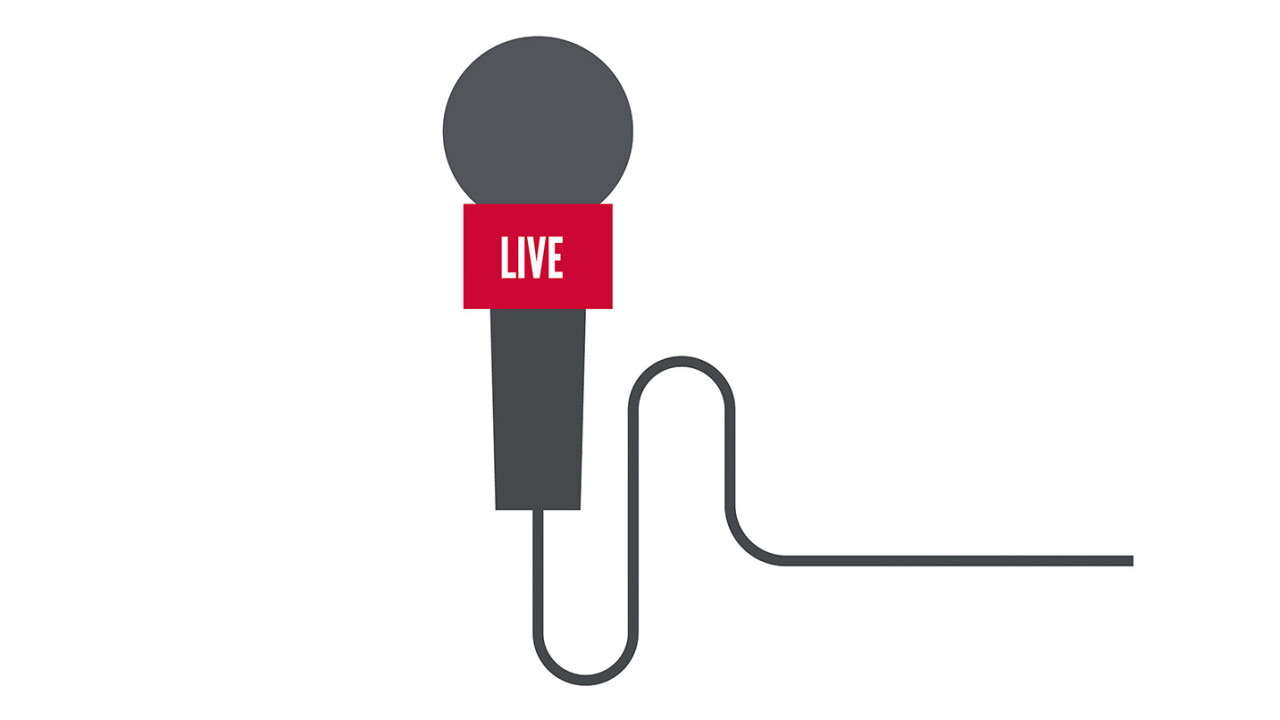We’re in the midst of a revolution. Not a ‘political revolution’ involving deportation, misogyny, or a White House that could one day feature 24 karat commodes and Trump branding, but a revolution that allows me — a member of the media — a jab at Trump in a piece that isn’t at all about him.
It’s a changing of the guard that no longer attempts to hide bias, but instead embraces it.
A century ago that would be almost inconceivable. Bias was the enemy of media, and merely exposing this view — even in context — could lead to an unceremonious trip to HR to talk severance. Hell, it still happens.
Killing the myth of unbiased journalism
It’s time to come clean.
I hate Trump; I’m in love with Apple products, and internet providers (like Comcast) get under my skin more often than Tinder CEO Sean Rad pisses off his shareholders. The only thing that even remotely compares to my frustration with telecoms is Apple’s PR group — seriously, do you guys ever answer email?
I’m a biased human, as are all journalists. It’s dishonest to hide the fact that we’re humans first — weapons of mass typo second.
Rather than ushering us to the center, TNW instead pushes us to go further to the left or right if we have an argument that can support it. We’re an opinionated source of information, a publication willing to push the boundaries of bias in order to further encourage readers who think just like we do — or completely the opposite — to get involved and start a conversation.
There are no strings attached to our opinions, no board room asking us to tone it down, and no parent company that really wishes we’d just shut up and sell more ads. We also lack the warm and fuzzy attitude that our naysayers (and the trolls) are always right when they spout off at the mouth in the comment section or on social media. We’re decidedly human, unique and opinionated — any departure from that would be a dishonest representation of our brand.
We get it.
It’s our biases that makes us unique. We embrace them.
Some of us prefer Microsoft, others Apple. iOS/Android, Windows/macOS, Roku/Chromecast… we’re about as split a group as is possible. Each of us has a take, a preference, and a viewpoint that is decidedly our own. Yet none of us would shy away from bringing down the hammer of justice when our ‘favorites’ do something stupid.
Napier, for example, loved the Galaxy Note 7. He called it ‘the most complete smartphone ever made.’ He was smitten. After they began catching fire, however, he promptly backed away and came down on the company that shipped the smartphone of mass destruction (not once, but twice) calling it ‘unforgivable.’
Bias doesn’t kill objectivity.
Most, however, still live in a world where they mistakenly believe the media is meant to be free of opinion, and therefore free of bias. This simply isn’t true, and it never has been. While the web might have ushered in a new dawn of independent and fearless media (RIP Gawker), it certainly didn’t spread this disease called bias to traditional journalism.
Television, print, and online media have always been slanted. If you’re looking for centrist news, grab the box score of a baseball game. If you want to avoid the trouble, read ESPN. From The New York Times, to Wired (online or print), you’ll find bias anywhere you look. At some publications, however, you just have to look harder than others.
Conveniently snipped quotes, excerpts from a book that advance a narrative, or the use of imagery to accurately convey tone all express bias — yet we’re still pretending it doesn’t exist.
Readers want biased reporting, they just don’t realize it sometimes
Apple is universally loved (or hated) for making bold decisions that move us out of our comfort zone. Dropping the physical keyboard on a phone, losing the ports on a MacBook, or killing the headphone jack are decisions that piss us off. It removes us from what we’re accustomed to and places us into uncharted territory that it realizes is best, even if we’re not there just yet.
Sometimes, we have to get out of our own way and let those that know what they’re doing take the lead. Media is a prime example. You’d be hard-pressed to find another segment that understands their audiences better than media companies.
If people wanted to read a spec sheet about the Samsung Galaxy Note 7, they would. Instead, they turn to industry experts for their take in seeing how it measures up. When they catch fire, they’re not reaching for police reports, they’re turning to Gizmodo, TechCrunch, and of course, TNW to get a not-at-all unbiased hot take (no pun intended) on the dumpster fire that is the news cycle.

Readers then criticize these publications for providing the very thing they want, even if they don’t realize they want it. Instead of asking for unbiased takes on the news, they’re missing the point entirely and leading news outlets to make these decisions for them — much like Apple does for its customers.
Readers don’t want unbiased news; they want opinions, just not those that they disagree with. In the echo chamber that has become our daily lives, we can find any number of news and opinion sources that are slanted to meet our viewpoint. It’s only when sources venture outside this self-imposed box that they begin to see bias, even though it’s always been there. Then, and only then, do they start to play the bias card.
But maybe they’re asking for the wrong thing. What readers really want — and should demand — is objective reporting.
While we can’t kill bias (though we can do a damn good job of hiding it), we can remain objective. My hatred for Gawker, for example, didn’t overwhelm my sense of objectivity when writing a farewell message to the site.
Or there’s Apple. I’m an unashamed fanboy of all things Apple, yet I won’t hesitate to bring down the hammer when I think it’s warranted. I’m also pro-Snowden, Anonymous, and Julian Assange. Again, my fanboy nature doesn’t overwhelm my sense of journalistic responsibility when it comes to calling a spade a spade.
(August 2016 Update: Fuck Julian Assange)
This opinionated slant is what drives journalism and elevates some publications above a crowd that’s fighting to move closer to center, or at least believes it wants to. Instead, maybe it’s time to embrace the bias.
We are, after all, fully capable of reading contradictory takes and forming our own opinion, right?
Get the TNW newsletter
Get the most important tech news in your inbox each week.





